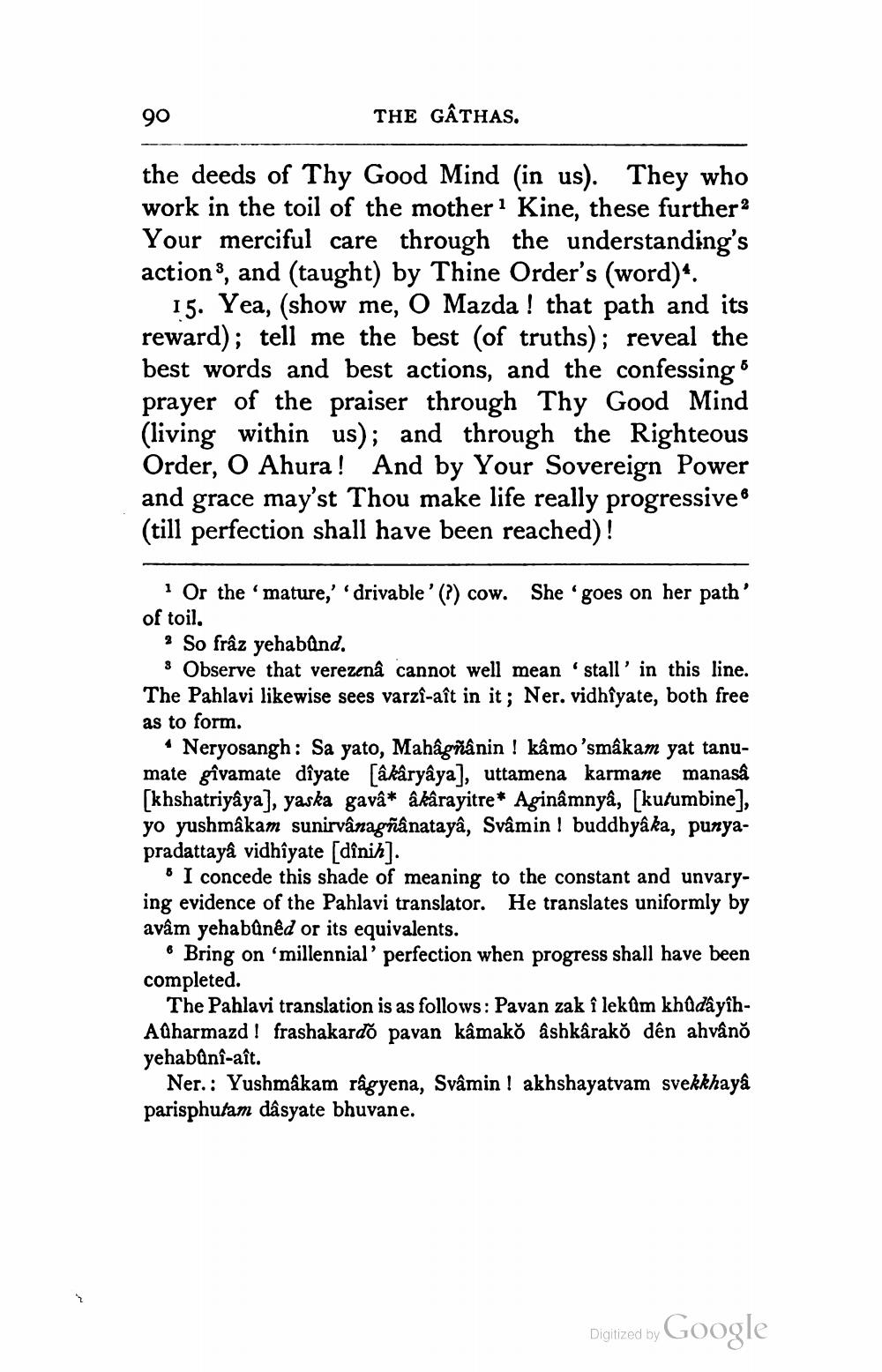________________
90
THE GÂTHAS.
the deeds of Thy Good Mind (in us). They who work in the toil of the mother 1 Kine, these further? Your merciful care through the understanding's action, and (taught) by Thine Order's (word)*.
15. Yea, (show me, O Mazda ! that path and its reward); tell me the best (of truths); reveal the best words and best actions, and the confessing 5 prayer of the praiser through Thy Good Mind (living within us); and through the Righteous Order, O Ahura! And by Your Sovereign Power and grace may'st Thou make life really progressive (till perfection shall have been reached)!
Or the 'mature,' drivable' (?) cow. She 'goes on her path of toil,
? So frâz yehabûnd.
3 Observe that verezenâ cannot well mean 'stall' in this line The Pahlavi likewise sees varzi-aît in it; Ner. vidhîyate, both free as to form.
• Neryosangh: Sa yato, Mahagñanin ! kâmo'smakam yat tanumate gîvamate dîyate [âkâryâyal, uttamena karmane manasa [khshatriyâya), yaska gavâ* âkârayitre* Aginâmnyâ, (kutumbine], yo yushmakam sunirvanagñanataya, Svâmin I buddhyâka, punya pradattayâ vidhîyate [dînih].
I concede this shade of meaning to the constant and unvarying evidence of the Pahlavi translator. He translates uniformly by avâm yehabûnêd or its equivalents.
* Bring on 'millennial' perfection when progress shall have been completed.
The Pahlavi translation is as follows: Pavan zak i lekam khûdâyîhAdharmazd! frashakardõ pavan kâmako ashkârako dên ahvâně yehabûnî-aît.
Ner.: Yushmäkam râgyena, Svâmin ! akhshayatvam svekkhaya parisphutam dasyate bhuvane.
Digitized by
Digitized by Google




